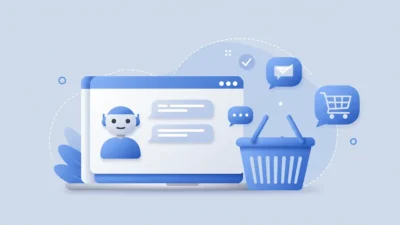Love ChatGPT but need more control and privacy for your business? Learn about effective open-source substitutes that provide cost savings and flexibility.The rise of large language models (LLMs) has revolutionized how businesses operate, but the reliance on proprietary solutions like ChatGPT comes with limitations. This article explores compelling open-source alternatives, empowering you to leverage AI’s potential without the constraints of vendor lock-in. We’ll review top contenders, guide you through implementation, and address common concerns.
Why Businesses Seek ChatGPT Alternatives
While ChatGPT offers impressive capabilities, many businesses are actively seeking alternatives due to several key factors:
- Cost: ChatGPT’s pricing model can become expensive, especially for businesses with high usage. Open-source solutions offer a cost-effective alternative, often requiring only the infrastructure costs.
- Data Privacy and Security: Submitting sensitive business data to a third-party provider raises concerns about data privacy and security. Open-source LLMs allow for on-premise deployment, enhancing control over data.
- Customization and Control: ChatGPT’s functionality is predefined. Open-source models offer greater customization, allowing businesses to fine-tune them for specific tasks and industry needs.
- Vendor Lock-in: Relying solely on a single provider creates vendor lock-in, limiting flexibility and potentially increasing costs in the long run. Open-source solutions offer freedom from this constraint.
- Ethical Concerns: Concerns around bias in AI models and the potential for misuse are driving businesses to explore more transparent and controllable open-source alternatives.
Understanding Open Source LLMs for Business
Open-source Large Language Models (LLMs) are AI models whose source code and training data are publicly available. This transparency fosters community development, allows for customization, and mitigates the risks associated with proprietary black-box systems. Unlike ChatGPT, which is a closed-source model, open-source LLMs empower businesses to:
- Fine-tune models: Tailor the model’s behavior to specific business needs and data.
- Deploy on-premise: Maintain complete control over data and security.
- Integrate seamlessly: Customize integration with existing business systems and workflows.
- Contribute to the community: Participate in the development and improvement of the models.
Top Open Source LLM Alternatives Reviewed
Several excellent open-source LLMs are emerging as viable alternatives to ChatGPT. Here are a few top contenders:
1. Llama 2:
Developed by Meta, Llama 2 is a powerful and versatile LLM known for its strong performance across various tasks. Its availability in different sizes makes it suitable for diverse resource constraints. Its open-source nature allows for significant customization and community contributions.
2. Falcon:
Falcon, created by the Technology Innovation Institute (TII), is notable for its remarkable effectiveness and performance.It’s designed to be computationally efficient, making it a great option for businesses with limited resources.
3. MPT-7B:
Developed by MosaicML, MPT-7B is a strong contender, particularly noted for its ease of use and accessibility. Its smaller size compared to some other models makes it easier to deploy and fine-tune.
4. StableLM:
Stability AI’s StableLM is another notable option, especially for businesses focusing on text generation and creative applications. Its performance is comparable to many closed-source models, making it a powerful open-source alternative.
Choosing the right LLM depends on your specific business needs and technical capabilities. Consider factors like model size, performance benchmarks, and ease of deployment.
Step-by-Step: Implementing an Open Source LLM
Implementing an open-source LLM might seem daunting, but with a structured approach, it becomes manageable. Here’s a step-by-step guide:
- Choose an LLM: Based on the review above, select the LLM best suited for your needs. Take into account elements such as model size, performance, and resource requirements.
- Set up Infrastructure: You’ll need sufficient computational resources. This might involve cloud computing services like AWS, Google Cloud, or Azure, or powerful on-premise servers.
- Download and Install: Download the chosen LLM’s model weights and necessary software dependencies. Follow the provider’s documentation carefully.
- Fine-tuning (Optional): If you need a highly customized model, fine-tune it using your specific data. This step requires more technical expertise.
- Integration: Integrate the LLM into your existing business systems and workflows using appropriate APIs and libraries.
- Testing and Monitoring: Thoroughly test the integrated LLM to ensure it performs as expected and monitor its performance over time.
Choosing the right open-source LLM is a crucial step in leveraging the power of AI for your business. By carefully considering your needs and technical capabilities, you can unlock the potential of these powerful tools while maintaining control, privacy, and cost-effectiveness. Remember to stay updated on the latest developments in the open-source LLM landscape as new models and tools continue to emerge.





